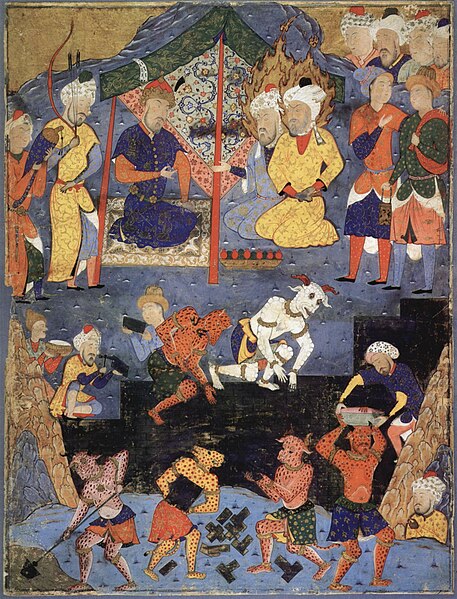Al-Masih ad-Dajjal, otherwise referred to simply as the Dajjal, is an evil figure in Islamic eschatology who will pretend to be the promised Messiah and later claim to be God, appearing before the Day of Judgment according to the Islamic eschatological narrative.
The word Dajjal is not mentioned in the Quran, but he is mentioned and described in the Hadith. Corresponding to the Antichrist in Christianity, the Dajjal is said to emerge out in the East, although the specific location varies among the various sources.
An image from a Falname made in India around 1610-1630, depicts Isa fighting the Dajjal. Behind, the Mahdi with a veiled face.
Minaret of Isa on the Umayyad Mosque in Damascus, Syria, which is thought to be one of the possible places where ʿĪsā will descend.
Jamkaran Mosque in Qom, Iran is a popular pilgrimage site for Shīʿa Muslims. Local belief holds that the 12th Shīʿīte Imam—the promised Mahdi according to Twelvers—once appeared and offered prayers at Jamkaran.
Islamic eschatology is a field of study in Islam concerning future events that would happen in the end times. It is primarily based on sources from the Quran and Sunnah. Aspects from this field of study include the signs of the final age, the destruction of the universe and Judgement Day.
Iskandar (Alexander) builds a wall to seal Yajuj and Majuj; here aided by dīvs (demons). Persian miniature from a Falnama, 16th century.
Muhammad's escatologic journey; Muhammad and "shameless women" in Hell
Pomegranate flower and fruit, considered a fruit from paradise in Muslim tradition. Therefore, it is used as an ingredient in a dessert (Ashure) used to commemorate prophetic events.






